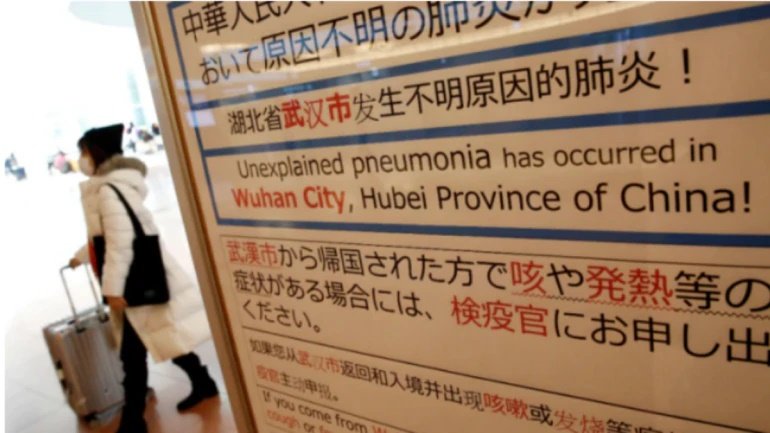Accentuating existing trends; the Corona crisis!!

As the death toll passes 50,000 worldwide with around one-third of humanity kept in lockdown, the Coronavirus pandemic has unfolded in the form of grave economic danger, social collapse and mass human casualties. With almost whole of the world’s population getting affected in one or the other sphere of their social existence underlining the significant hidden fault lines that this globalised world carries with it, governments, theorists, economists, thinkers around the world have got engaged in making sense of what this crisis means to this already fractured world order.
Looking at the wider picture, it seems that the crisis has accentuated the existing trends that dominate the current international scene and has given the sceptics, anti-globalists, nationalists all-new evidence to substantiate their views with comparative advantage.

Politically, the fact that we have populist, authoritarian and nationalist leaders with their legitimacy based on ultranationalism across different power centres makes the crisis look more severe. The opinions characterising tighter border control, anti-immigrant policies and hostile to refugees have got the essential boost to thrive and it should be of no surprise to the international community if leaders like Donald Trump go on with their policies of tighter border control more resolutely. The traditional constraints of social interaction and organisation mainly ‘space’ have got the opportunity to reassert themselves in the form of greater state power. The post COVID restructuring is going to be a tough task as every populist leader with their ultranationalist interest leave little space for give-and-take bargaining, and there is no such international coalition of populists and authoritarians as many had predicted long while ago. Discrete nationalist response to this global problem has only added to the legitimacy of sceptics and realists and has given them the power to use emergency measures, something that many will restrain from relinquishing once the crisis is over.

Considering the political organization of society at large, China’s tackling of crisis by initial indifference to threat and suppression of facts & figure leading to mass outbreak across the world. And then the massive containment brought by brutal quarantine and Iron hand dealing reflects both the respective sides that a communist political system offers. With democracies around the world facing difficulties in maintaining restraint especially in a democratic society like ours, where obedience is taken as a curb on personal freedom in this largely polarised domestic order and people see every government guideline with an element of scepticism mounted due to the trust deficit between the ruler and the ruled, and it takes time to bring people into confidence the virus has posed a real threat which calls for a swift response.
Read: How COVID-19 is Changing Global Strategic Equations?
Looking at the world economy, with an absolute business breakdown in some of the countries & proportionate in some of the other leading to huge economic collapse, the undercurrent theme of deglobalisation characterised by ‘protectionist’ and ‘isolationist’ tendencies that persisted since the global financial crisis of 2008 across different power centres look more grim and strong now. The pandemic has revealed the incompetence of governments in delivering fundamental goods and services to their citizens and has posed an existential threat to many around the globe, more autarkic economic policies is obvious to follow this crisis. Tighter border control and traditional constraints of mobility can result in a retreat from multilateralism with countries getting engaged or concerned with self-sufficiency in their private national economy. Even now, considering deglobalisation a myth would be a conceptual folly.

And as the crisis unfolds revealing stark inequalities that are deep-seated in this largely capitalist world with its manifestation in the form of migrants exodus, poor battling existential crisis due to lack of basic necessities and class prejudice in treatment and containment, the renegotiation of the social contract is bound to occur. The outbreak of this pandemic has brought us to face some real question on our social organisation. People getting outrageous overlooking at the defence budget and indifference to the health and social security is symbolic of the upcoming ‘Bigger State’.There is a generalized temptation towards reorienting economic policies from market-oriented to welfare-oriented, something that will make libertarians across the globe feel sad.
Many have argued that crisis like these introduces an element of solidarity in international order but such optimism doesn’t last long given the nature of political establishment we have and as the history suggests. There may be some sort of coalition of convenience in dealing with it but as long as the sustainability of such a coalition is concerned, it won’t last long.
Though the consequences and lasting impact of the pandemic are yet to be ascertained, this pandemic has come out with two important inferences till now. First is that we cannot simply afford a hegemon like China. Their initial indifference, refraining from being made accountable and use of offensive propaganda in these bad times have revealed the effects of an amoral leadership. It has also made sure that the World is going to find it very difficult to control the middle kingdom’s rhetoric. And the other one is deeply seated racism that still exists in the global north towards the global south evident from writings of some of the western media.

Though it is unrealistic to think of putting the genie of globalisation back to the bottle and is really hard to predict power reshuffling going forward as they say “anything that is predictable in the world order is unpredictability” but then also the sceptics & realists-are going to have the last laugh in this ideological battle and the theme of interconnectedness looks looming backwards. The post-COVID 19 world would be a much smaller, less prosperous and less connected and the world that is already fracturing is going to be severely affected.


















